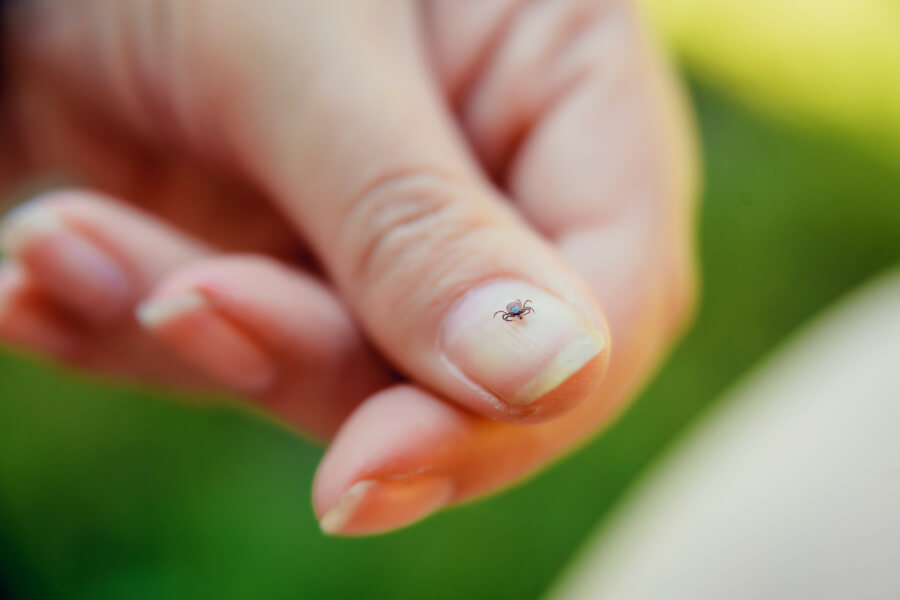Have you ever caught a tick mid-bite? Finding a tick trying to latch itself onto you to draw your blood is one of the creepiest pest-related experiences you can have in Central TN. Unfortunately, our climate proves suitable for many different species of them to thrive. The most dangerous species in the area is the deer tick because of its ability to spread Lyme disease. Wondering how you can keep safe from tick bites and their dangerous consequences? Read on to learn how with expert advice from The Bug Man.
How Do People Contract Lyme Disease?
The most common reason for people contracting Lyme disease is being bitten by a deer tick nymph. Deer ticks are capable of harboring and spreading Borrelia burgdorferi, the bacterium that leads to Lyme disease in humans and animals. At only 2 mm long, deer tick nymphs are tiny enough to sneak up onto our legs undetected, and with their anesthetic saliva, they can ensure that their bites cause no pain during the process.
If you contract Lyme disease from a tick bite, the first symptoms you will feel are usually headaches, fever, rashes, muscle and joint pain, and exhaustion. However, if left untreated, these symptoms will snowball into serious nerve damage and arthritis. If you think that a recent tick bite has left you with the initial symptoms of Lyme disease, call your doctor immediately.
Best Ways to Avoid Ticks
Ticks usually hide out in shaded, vegetated, humid areas, waiting for small animals or humans to cross their paths. No one wants to spend their spring and summer inside in fear of tick bites, so it’s important to understand the best methods of protecting yourself, your children, and your pets from coming in contact with these pests. Follow our advice to steer clear of ticks:
- Wear long pants and long socks while spending time outside to limit exposed skin.
- Keep your children and pets on the trail and close by when going on hikes or walking in densely vegetated areas.
- Always perform a tick check on yourself and everyone else when coming back in from extended time outside.
- If you find a tick on your body, don’t pinch it with your fingers. Secure the tick with tweezers as close as possible to the skin and pull it out slowly.
Professional Tick Control in Central TN
You shouldn’t be dealing with ticks on a regular basis. If you, your children, or your pets are constantly coming back inside with ticks on their legs, you have a tick problem that needs to be addressed by a professional tick exterminator with regional experience. The Bug Man’s team can come out to your property to inspect the premises for tick hotspots and apply a barrier treatment that will keep them away through the summer. Contact us today for a free quote on our tick removal services!

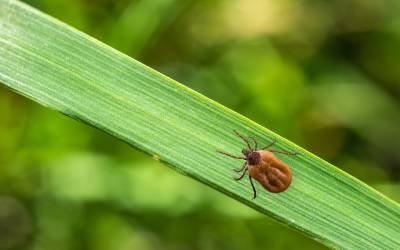
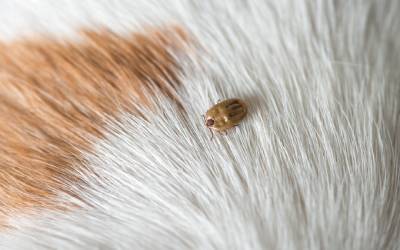
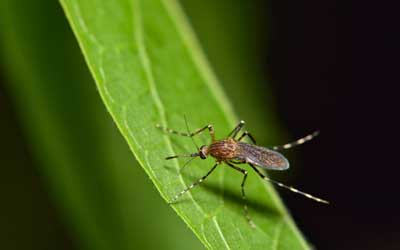
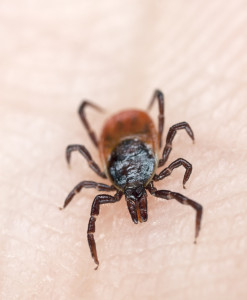
 Don’t forget about your four-legged babies, too. Please discuss tick treatment for your pets with a veterinarian. There are many treatment methods available and something that works well for one pet may not be best for the other. Cats and some breeds of dogs can be sensitive to some products. So, it is always best to check with your vet, first. Also, you will want to inspect your pets and their bedding frequently for ticks.
Don’t forget about your four-legged babies, too. Please discuss tick treatment for your pets with a veterinarian. There are many treatment methods available and something that works well for one pet may not be best for the other. Cats and some breeds of dogs can be sensitive to some products. So, it is always best to check with your vet, first. Also, you will want to inspect your pets and their bedding frequently for ticks.
